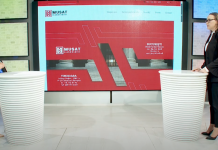Authors: Mihai Popa (Deputy Managing Partner) and Oana Lupu (Managing Associate)
Under the general concept of “work-life balance”, both personal and professional life are considered equally valuable for employees and, thus, they should be complementary and mutually consistent. However, balancing work and family responsibilities became an outstanding issue in the modern society where development of ITC technologies and collaborative economy often lead to blurred lines between work and personal life and traditional family patterns are changing by growing proportion of women in the labour force and prevalence of single-parents families.
At the EU level, Directive (EU) 2019/1158 of the European Parliament and of the Council of 20 June 2019 on work-life balance for parents and carers and repealing Council Directive 2010/18/EU (the “Work-Life Balance Directive”) aims to set out minimum standards which will help people develop family life and careers without having to sacrifice either. In Romania, this Directive was transposed through Law No. 283/2022 which entered into force on 22 October 2022, regulating a series of measures intended to reconcile work and personal life.
New measures to promote work-life balance
One of the most important changes refers to the regulation of the carer’s leave. Under new law, the employee is entitled to benefit of 5 working days of carer’s leave to provide personal care or support to a relative or person living in the same household as the employee who needs significant care or support due to a serious medical condition. This leave is granted at the employee’s written request, it is not included in the annual rest leave and it constitutes both work seniority and specialty seniority. Please note that care’s leave is granted in addition to regular childcare leave.
In addition, the new legislation sets forth the unforeseen circumstances leave, that is granted for a maximum duration of 10 working days per year in case of a family emergency due to illness or accident requiring the employee’s immediate leave, subject to prior notification of the employer and full recovery of the period of absence leave based on a schedule mutually agreed upon by the employer and employee.
The new definitions of flexible working time organization as well as the regulation of the employees’ right to benefit of individualized working arrangements (in Romanian “program individualizat de munca”) at their request are also intended to facilitate reconciliation of work and family life. An absolute novelty consists in the correlative express obligation of the employer to justify any refusal of approving the request for individualized working schedules in writing and within a 5-days timeframe. On the expiration of the period of flexible working, the employee shall be entitled to return to the working arrangements held immediately before the commencement of the flexible working arrangement.
We underline that the right to request flexible work is separate and distinct from the right to request remote work.
The new legislative amendments also increase the level of protection of employees against discrimination and adverse treatment, explicitly stating the prohibition to dismiss the employees for filing a claim on violation of their legal rights or of the equal treatment and nondiscrimination principles. The prohibition to dismiss the employees is also extended for the period of paternity leave, carer’s leave or unforeseen circumstances leave.
Practical recommendations for employers
The employers should revise and update the employment agreements, Internal Regulations and any other internal policies/procedures referring to any relevant aspects for ensuring the compliance with the new legislation. For instance, the work policies should be amended to include a process for applying for flexible working arrangements, the eligibility criteria and reasons for refusing a request.
As regards the further implementation in practice of the updated employment documentation, most probably companies will face various challenges from legal, operational and financial perspective, who must handle legal notions open to interpretation (such as “emergency case caused by accident”), find the optimal way to update the internal tools and working procedure, harmonize the new rights of the employees with the company’s HR related policies (e.g., personnel retention strategy) and fit the approved HR budget.
Nevertheless, considering that the measures outlined above were implemented into internal legislation together with another set of rights and obligations intended to ensure transparency and predictability of working conditions, organizations should carefully analyze these significant changes by conducting an internal impact assessment and draw up an implementation plan, depending on their particular circumstances.
Conclusion
Undoubtedly, Work-Life Balance Directive and the newly adopted measures in local legislation constitute a significant step in tackling the issue of work-family balance, by regulating legal mechanisms likely to allow for more flexibility to adapt caring responsibilities to an employee’s personal needs or preferences and to facilitate an equal share of caring home responsibilities between men and women.
Besides the plain advantages for the employees, it is expected that this new package of measures will be favorable also to the organizations that will benefit from a more motivated and productive labour force, as well as from less absenteeism. On the downside, such advantages are coming together with cumbersome implementation processes.
Further legislative amendments are expected to be approved within the next years at both EU and national level with the aim to close the gap between the work-life balance concept and the modern labour market trends.














